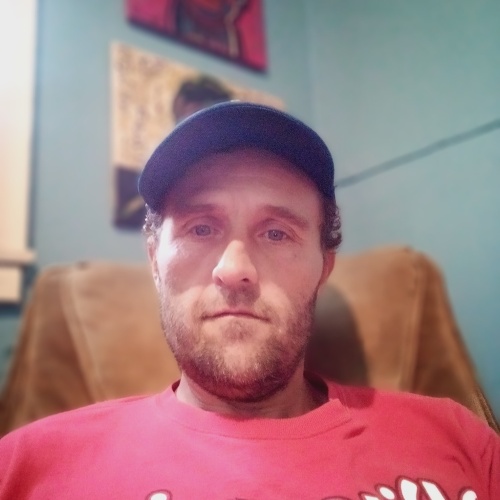Louisiana fisherfolk fear Air Products' Lake Maurepas carbon capture scheme
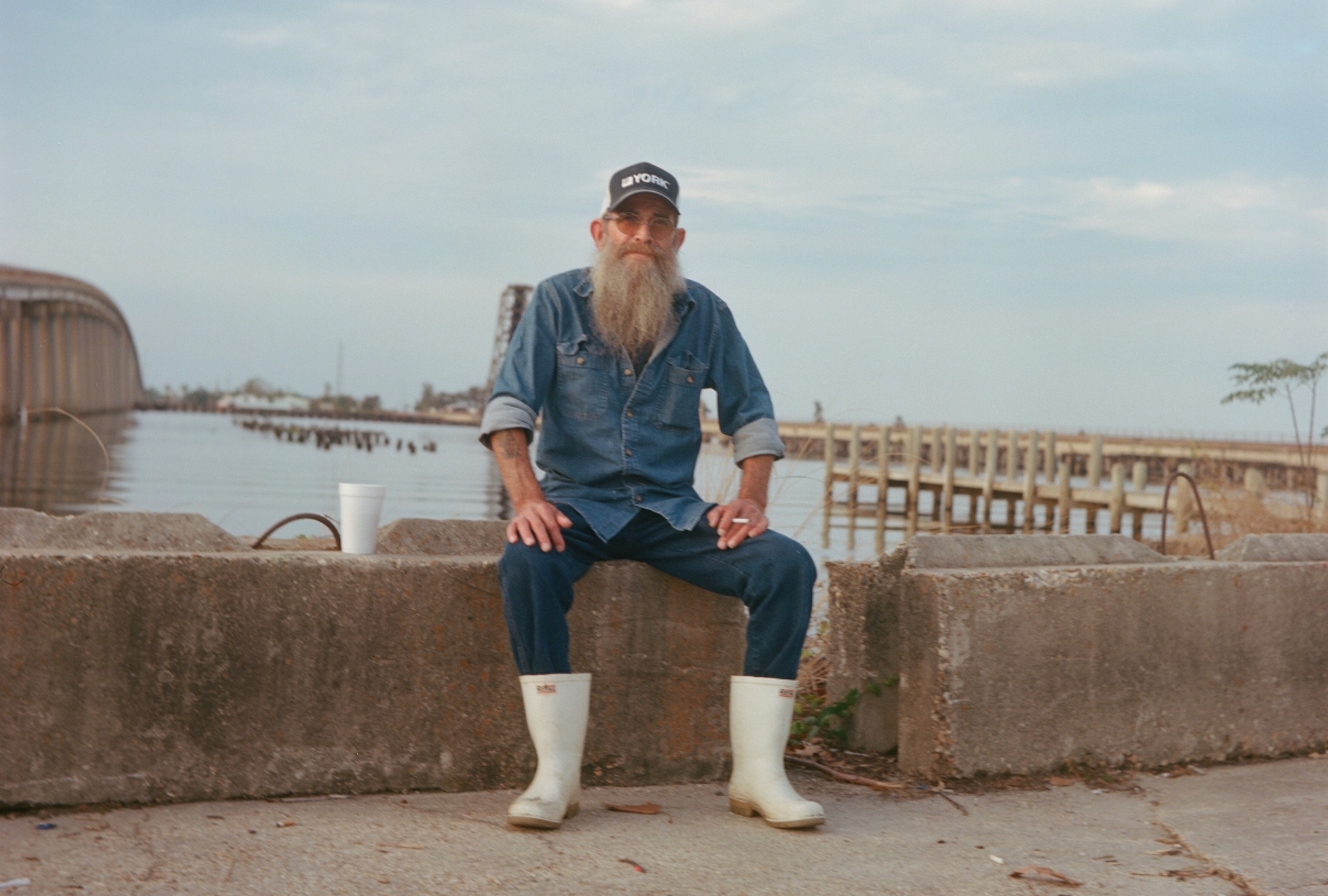
Pottee Kremer is among the fishers of Louisiana's Lake Maurepas who fear Air Products' plans to build a hydrogen plant in Ascension Parish, capture the carbon dioxide, pipe it 35 miles, and store it in injection wells more than a mile below the estuarine lake. (Photo by Jason Kerzinski.)
In October 2021, Louisiana Gov. John Bel Edwards (D) announced that Air Products, a Fortune 500 chemical company based in Pennsylvania, would develop a so-called "clean" energy complex in Ascension Parish, Louisiana, by 2026. The $4.5 billion project calls for construction of a plant to convert natural gas to hydrogen and capture the resulting carbon dioxide.
Industry refers to hydrogen produced with carbon capture as "blue hydrogen," as opposed to the "gray hydrogen" produced without carbon controls. Supporters say Air Products' proposed "blue hydrogen" project would help Louisiana, one of the nation's top natural gas producers, meet its clean-energy goals — even though when it comes to heating buildings blue hydrogen has a carbon footprint 20% larger than gas and coal. When Congress passed the Inflation Reduction Act in August, it increased the value of the carbon capture tax credit to $85 per ton, which would allow Air Products to receive as much as $425 million in annual tax credits for the project.
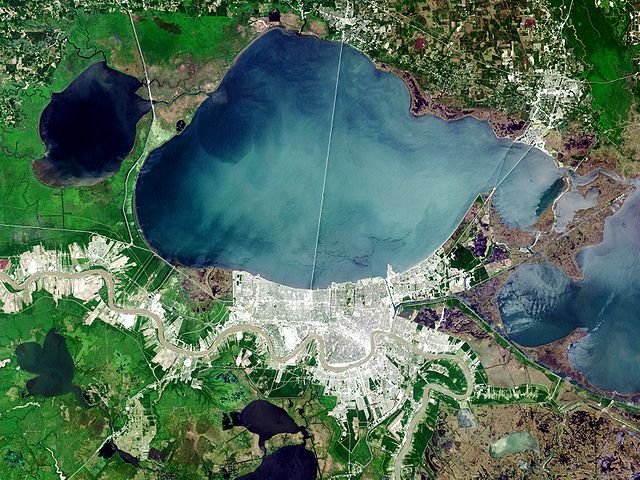
But many locals are worried about where and how Air Products will store the captured carbon long-term. Current plans call for the waste to be piped 35 miles and pumped into injection wells over a mile below Lake Maurepas, an ecologically rich estuarine system that lies about halfway between New Orleans and Baton Rouge. Seismic testing using dynamite to determine whether geological formations beneath the lake are suitable for storing carbon are set to begin on Nov. 17, with 17,000 charges to be detonated 60 feet below the water's surface — a process that itself can be disruptive to wildlife. The testing is expected to finish next spring.
Air Products' Louisiana project would be the biggest blue hydrogen project to date. Currently, only two other such plants are in operation worldwide: one operated by Air Products in Texas near Houston, and the other in Alberta, Canada, operated by Shell. Air Products claims the Louisiana facility would capture 95% of the carbon produced, but data from the Canadian operation raises questions about how much carbon such facilities can really capture. For example, a 2021 paper titled "How green is blue hydrogen?" published in the peer-reviewed journal Energy Science & Engineering found that the Alberta plant "shows a mean (average) capture efficiency of 78.8%, with daily rates varying from 53% to 90% except for one outlier of 15%." A recent study from the Intergovernmental Panel on Climate Change noted critical knowledge gaps in carbon capture technology — including whether it's even possible to store carbon dioxide over the long term without leakage.
At public meetings about the Louisiana project, local residents have been outspoken in their opposition. They worry about the project's impact on the ecology of the lake and surrounding area, which is rich in wildlife including white-tailed deer, waterfowl, and bald eagles. Lake Maurepas is also an important fishery for blue crabs, oysters, and catfish, and local fisherfolk are concerned about how the planned blasting, pipeline construction, and carbon storage will affect the lake's health and their livelihood in the surrounding parishes: Ascension, Livingston, St. John the Baptist, and Tangipahoa. While the project already has the approval of the Louisiana Office of Coastal Management, it still needs permits from the Louisiana Department of Wildlife and Fisheries and the Army Corps of Engineers.
I recently spent time with commercial fishermen working on Lake Maurepas, individuals with generations-deep connections to the water. To understand their concerns, I asked them this question: "What are your fears about the proposed blue hydrogen facility that would attempt to sequester carbon more than a mile below Lake Maurepas?" This is what they told me.
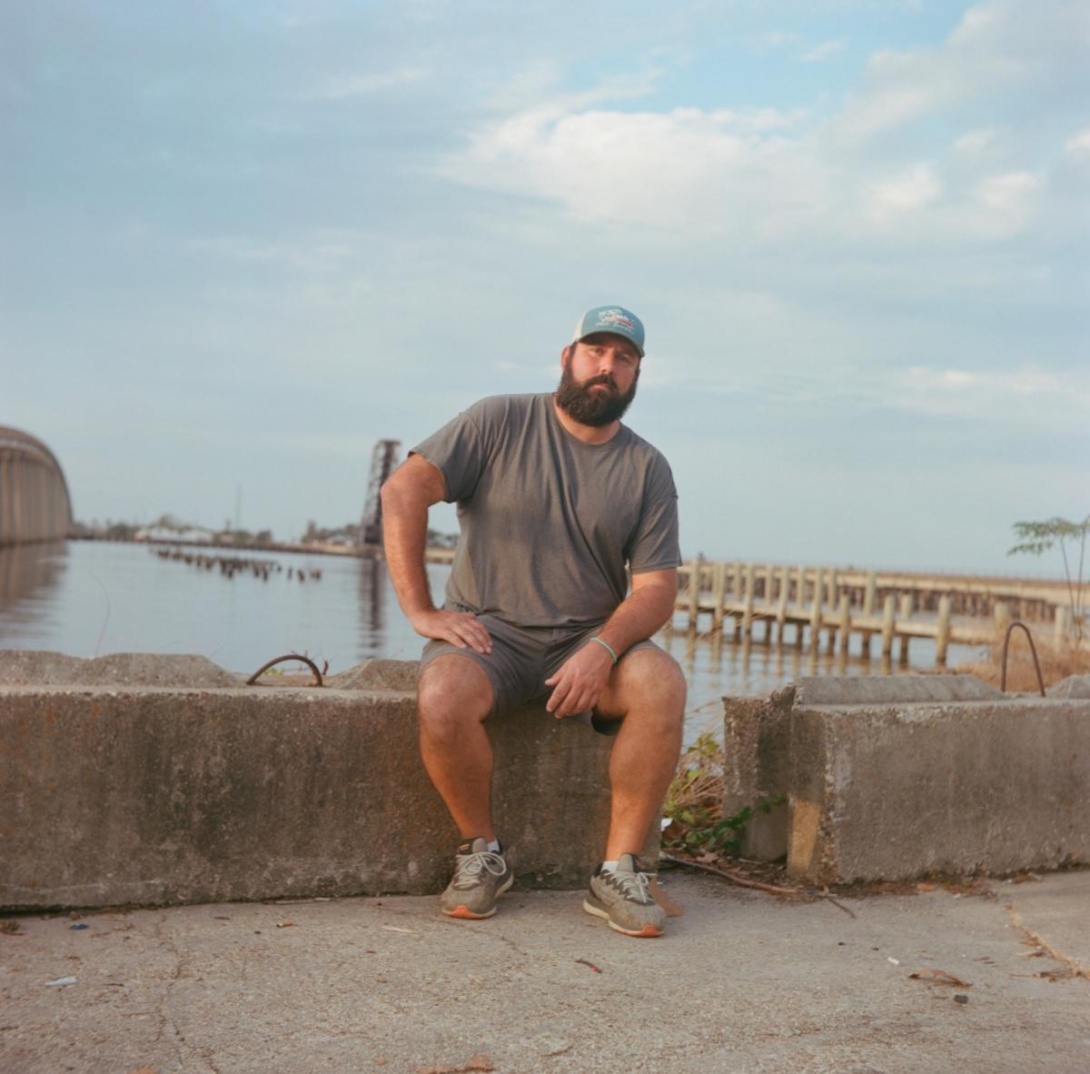
Laramie Hill: 'They should be ashamed of theyself'
My fear's, you know, like, they plan on doing this project in this lake. They don't know what's gonna happen. They don't know, you know, good or bad. They saying it's good, but is it bad? And my biggest fear — what if it's bad?
Us fishermen been doing this our whole life, you know? And we at the age in life we can't do nothing else, you know? And it's sad. It's a sad thing to say, but we depend on this lake for our livelihood, to feed our kids, you know, and put food on the table. And that's all we know. And we really scared. I'm scared. And if things go south, you know, like, I don't know what to do.
I got a 16-year-old son, and every fisherman in Manchac, they know him. He's a hard worker, and it's in his blood to be a fisherman. And I'm looking at him, like, I'm probably getting close to being over the hill. And I'm looking at their future like, when he comes up, what is he gonna have to look forward to? And I've been telling him, "Son, you need to…" As much as I want him to be out on that lake and enjoy it, I tell him daily, "You need to really think about it, you know, 'cause the way this is going, the direction it's going, I don't know if they got a future in this fishery." It's sad to say it, you know, 'cause I raised three kids and provided for my family for 22 years now, you know, and I've made a living. But the future? I don't know what's upcoming down the road.
And so I'm not for this project. I haven't been from day one. And it's just a scary situation. And how it's being now, and I've been to all the meetings. It's kind of — nobody wants this to happen in that lake. Nobody. But how it's leaning towards they gonna do what they gonna do, no matter what we say. We can bicker and gripe, and they gonna do what they wanna do, you know. All we can do is voice our opinions, and go with it from here. So that's about all I got to say.
I'm not for it at all. And I'm really — you know, the ones around here that's for it, they should be ashamed of theyself, you know, to watch such a beautiful environment go to shit. You look out across that lake, you can go out there here right now and look at the view. Here 'fore long you gon' look out there and it's gonna look like New Orleans, with them lights from them wellheads. We don't want that. I don't want it for my kids, you know.
The tourists — they come at Middendorf's and eat. You come here on a Sunday afternoon, Saturday, and look how many vehicles is parked on that road. And when they come out of Middendorf's, they walk to them rocks and they get to see that lake. And they from all over the U.S., and they look at that lake. But when they start that, you know what they gonna see? It's gonna hurt businesses. They not gonna want to come. They might as well go to New Orleans.
So I'm not for it, I never have been for it, and we just gonna have to see where it goes from here. I done said my piece and do what I can do.
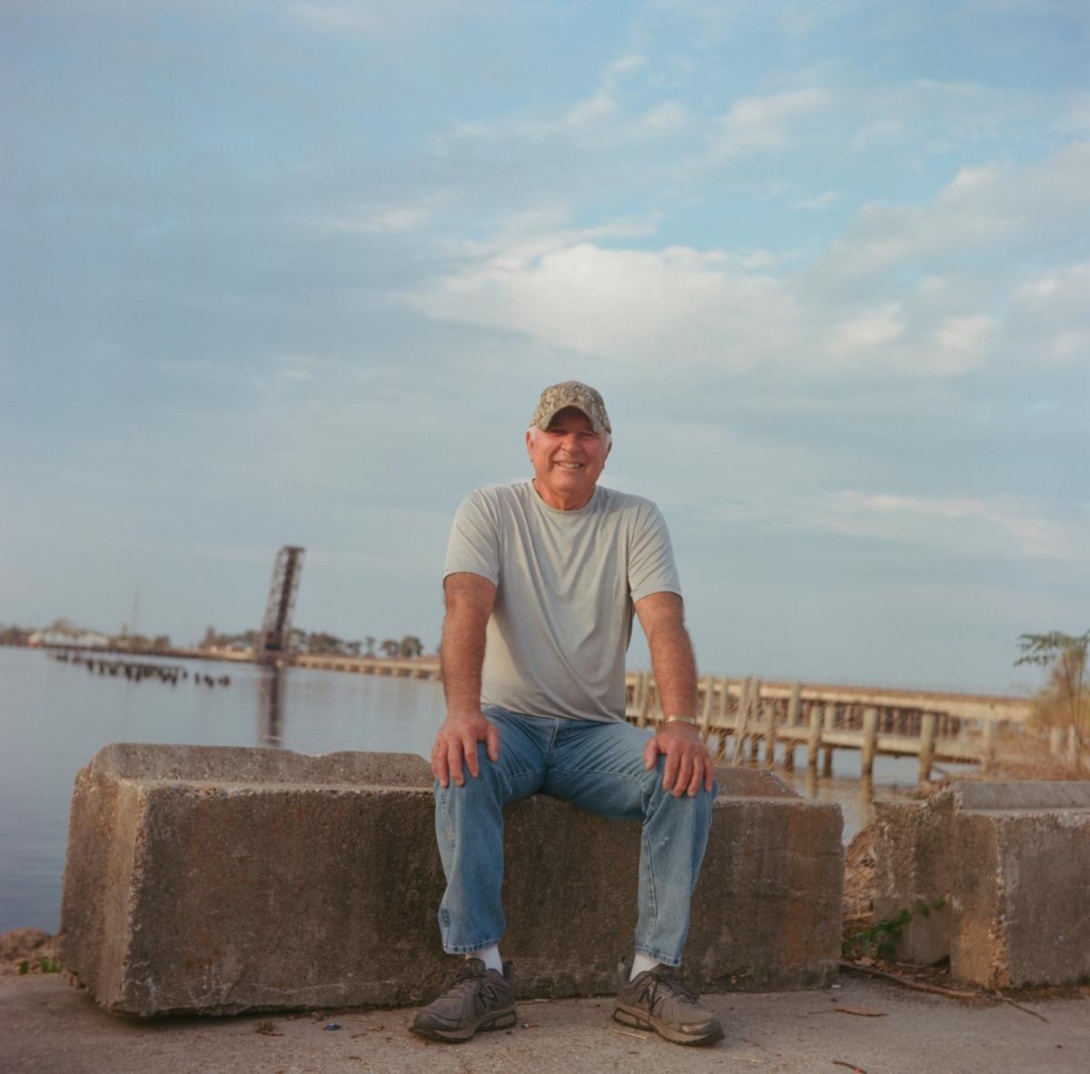
Rocky Rakocy: 'I wake up at night thinking about it'
I have many fears because you know, they gonna mess with the lake in several different ways. And the lake has went through a lot of natural disasters, with the moor we're sitting at has been underwater and it recovered. But can it come back from man-made disaster? It may never come back if something happens. Is it worth gambling that lake on billion-dollar projects that don't mean too much to me, or you, probably?
And they say, oh, everything's guaranteed, it's the best site. It is actually the worst site you could pick out of the whole state to me. It's the worst site. Why would you want to put something in a lake like that? That they won't let you trawl. They won't let you dig. They won't let you dredge. That's been outlawed for years. You can't drive a nail in a tree to build a deer stand. They gonna cut cypress trees to lay a pipeline. There's no getting out of that. They gonna mess with the swamp, the lake, the bottom, to pass everything around here.
And every parish around this lake is affected by that. Not only commercial. I've been in commercial fishing for over 50 years. My parents were. And we all done good. Might not been too rich, but we done all right. And that could be destroyed. Not only that, the recreational part. You got a boat launch up here, any given weekend there's 500 cars there. People enjoying it.
Like Laramie said, you don't want to go out to that lake to see a wellhead, you want to see a cypress tree. So, I mean, it just affects you. They paint you a pretty picture about this project. Yeah, it's pretty for now. It's a green deal. It's green. We all know that. So it's got a lot of danger for me. And I wake up at night thinking about it. And I mean, it's just very important to the whole area — not just us fishermen and Manchac, every parish surrounding the lake. And like Laramie said, is nobody for it that I know of. I just hope it fails. That's it.
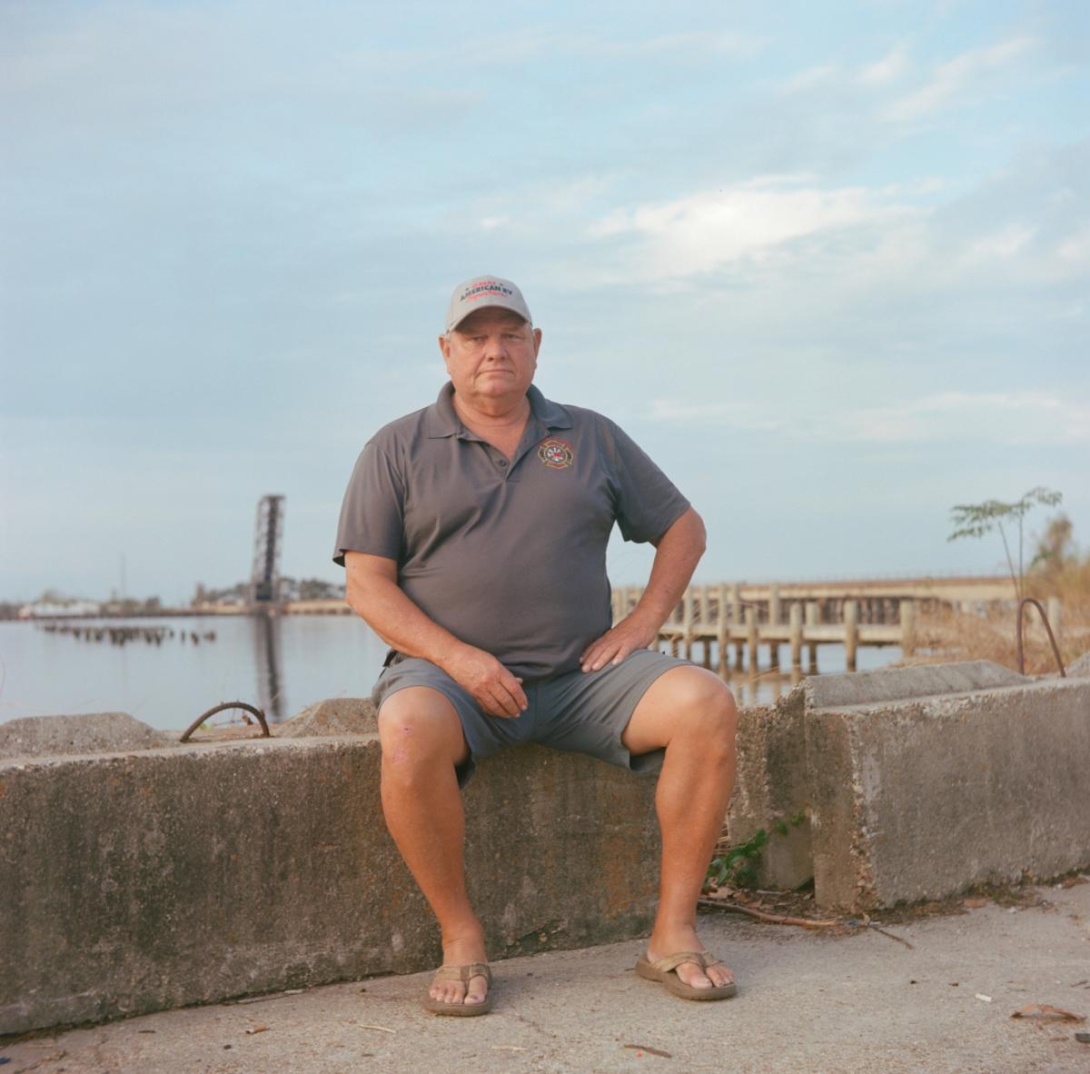
George Coxen: 'This is just a headache for us'
I've been a commercial fisherman for 25 years. Fish — crab and fishing. I'm 70 years old. And this is an estuary, this whole lake, this whole Pontchartrain estuary here. And how they can go in here … Like Rocky said, you can't drag, you can trawl or anything like that for shrimp, anything else, in the little lake, because shrimp come in here and grow. Crabs come in here to go through the winter and grow, and then they come up. So you're gonna go in there and disturb this bottom.
[Seismic testing company] Exoduas are gonna put 17,000 holes in the bottom of this for seismographs. And then they gonna come in and drill, other people are gonna drill test wells, or monitoring wells. So they disturbing the bottom of the lake. And then they gonna come in with a pipeline, a 24-inch pipeline, all the way across the lake to go into these injection wells. So all they're doing is what has not been allowed for the last 40 years — disturbing the bottom of this lake.
And then we got — we've had some storms here lately, and it causes an algae bloom over the top of the lake. And where's that algae bloom go? It settles on the bottom. Ever since Katrina, we've had algae blooms just about every summer. And it just takes all oxygen out of water, but it settles down. And when that goes to the bottom, now they're gonna go down there and disturb it, so what's that gonna do? It's the unknown, 'cause nobody knows what's gonna happen.
These seismographs could kill everything in this lake. And then the drilling and everything else. It's just, why in an estuary would you do something like that? A preservative place. It's just beautiful. People from all over come here. They have — there's nothing out there right now except cypress trees around the edge of the lake that you see. They have poker runs in the summer — a multimillion-dollar Tickfaw 200 poker run. And they got one of their monitoring wells that's right in line with Tickfaw River for them coming over to here. And it's the size of two king-size beds, the wellhead, they said. You think things see this at 10 o'clock at night? Hopefully the lights don't go out. And I'm talking about speed boats up to 150 miles an hour come through here. People from all over the United States and Canada come down here for this poker run.
So it's a place for people to enjoy, not to be abused. And that's what I feel like. This is just an abuse of political gain. financial gain, for the people above us, not for us down here. This is just a headache for us. I can't see disturbing something that is so pristine. And that's what I got to say.
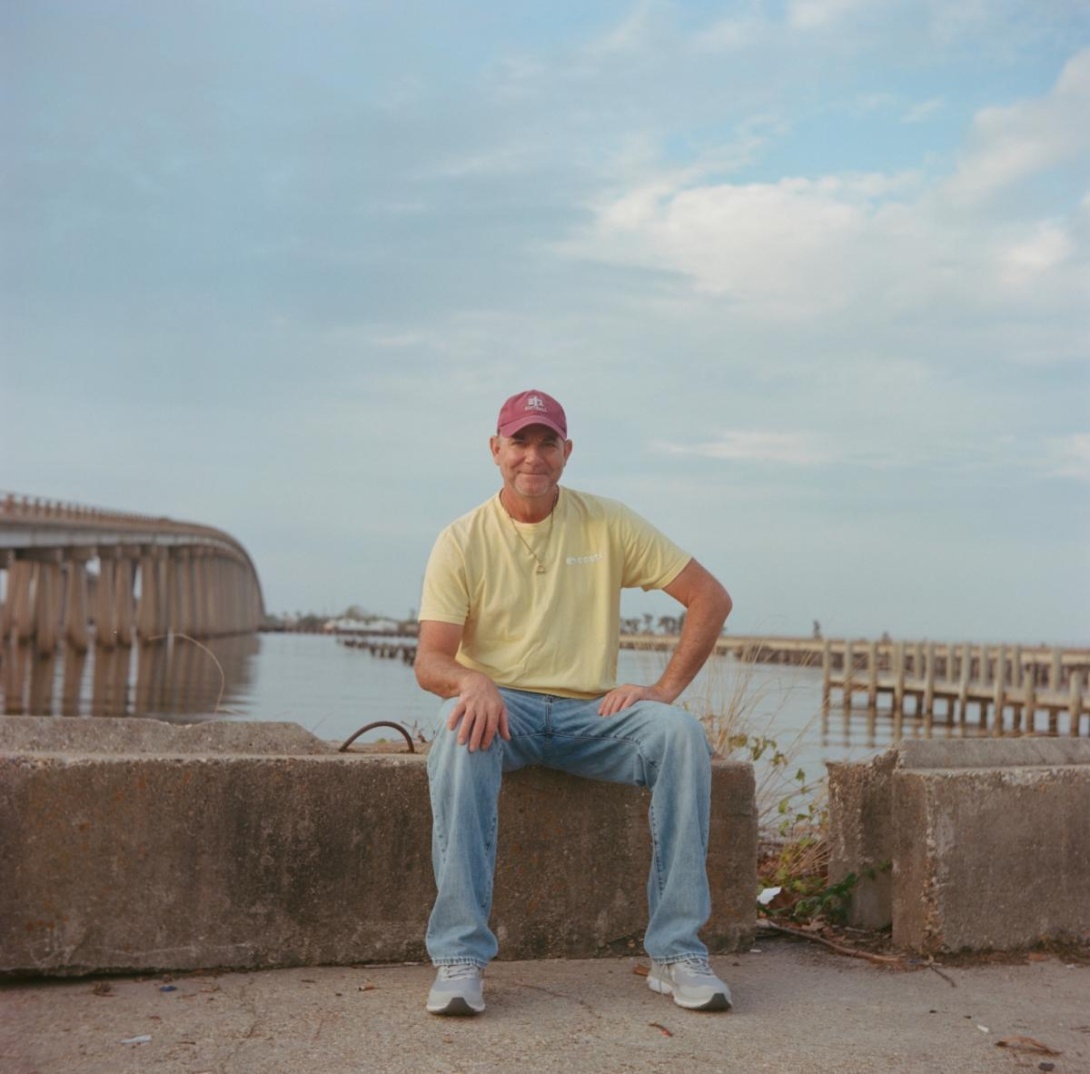
John Hoover III: 'You cannot put a price tag on this'
I been in this catfish and blue crab fishery down in Manchac over 30 years of my life. My dad had me on the lake shore when I was 2 years old, took me out looking for old artifacts, as he was a history buff. Teaching was his profession. And I'll never forget, I walked out on the lake shore, I was just just starting to walk at that age, and was barefooted. And my toes was lapping in the mud and the sand, and the water was coming up hitting my toes, and that lake just got in me. And it's part of my DNA. It's in my blood. I developed a passion at a very young age for this place, for Manchac, for Lake Maurepas, Lake Pontchartrain.
And the fears that I have coming from this carbon sequestration project in the lake are, you know, what happens if this has some very negative impacts on anything around here, any part of the estuary or the ecosystem that make up our seafood industry, our recreational industry down here as well? We have rangia clams in both of these lakes; they're filter feeders. They just burrow themselves just below the mud and they filter the water, and that's part of having a healthy ecosystem and an estuary which produces a lot of seafood. You know, everything comes in here in this basin, migrates here, grows here, shrimp and crabs, catfish as well.
You know, we have a huge recreational benefit down here also with the public because it's such a beautiful place. You know, Lake Maurepas is probably one of the few places in the world that you can go to, basically on a boat, sit in the middle or sit anywhere for that reason, and look around and it looks the same as it did 1,000 years ago, other than cypress tree loss. And a lot of that was because of man harvesting the site, 1,000-year-old cypress trees. We had a mistake when they did that because it changed the environment around here. It started to cause subsidence, you know, land begin to sink, as well as leveeing the Mississippi River. You know, they didn't know what they were doing back in those days when they leveed that river. Now all of the sediment goes off the Shelf, the Continental Shelf, into the Gulf of Mexico, and Louisiana's subsiding, you know. Part of the fears of this project, or again the unknowns of what could happen, but also the fact that have we not learned from our mistakes of the past? Cutting down 1,000-year-old cypress trees was a big mistake. Leveeing the Mississippi River put us in a coastal crisis that we're in right now. That was a big mistake. So I have a lot of concerns and fears of what happens with a project like this if something goes wrong. Here we go again. Have we not learned from the mistakes of the past that could jeopardize a beautiful place?
It's not only a fishery for the commercial fishermen, people who who make their living here. Again, it's for people to come and experience, to come and enjoy. This is South Louisiana's liquid therapy. You don't have to pay for this. It's here. It has been here. And there's no other place in the world you can come and sit in your own silence and decompress. It's the greatest liquid therapy you can ever have.
And from an ecosystem standpoint, and I've been here, I'm 55 years old. I've been here all my life. Again, my father loved being on the water even though he was a teacher by profession. And I've always had, you know, some type of contact with this, whether it be fishing or hunting, trapping back in the '70s. Trapping was a big industry down here. I was involved, you know, with a little bit of everything. But one of the things that always amazes me is the migrating waterfowl, or just the fowl within itself. We have an abundance of eagles that are showing up now, that are migrating down this time year, December — November, December. They'll start building nests or they'll reuse nests that they've already previously built because they had success with having chicks out of it. We have a really good food source for the eagles and the ospreys, another bird. It's just amazing. These birds are very, very much alike and they also depended heavily upon the mullet. The mullet is an integral part of their food chain, and it's right here in Lake Maurepas. It is very important for their survival as they survive on them, they feed it to the chicks.
You know, everything in this estuary depends on each other for success. A project like this with the unknowns and the fears of what can happen can be very detrimental to the habitat. It can be detrimental for everything that calls Lake Maurepas in Manchac, Louisiana, home. This place should be like a sanctuary where you can't go in and touch it from an industrial standpoint, you know. We don't want to see our lake turn into Air Products' dumping ground. We do not want to see that at all. We want to see this place as it is, as it has been, even though, again, we've had, you know, decisions that were made with the cypress industry that didn't turn out very well. We want to see it protected. We want to see it protected for these generations that are coming up. I grew up with my dad seeing these things. I want, you know, my daughter's kids to come up and see a place that I got to see in my younger days.
So all in all, it's so important, not only as an estuary, as an ecosystem, but to the generations, and people to come to the state of Louisiana and experience this. It's priceless. You cannot put a price tag on this. You know, with Air Products, we've been told, well, if something happens, we're going to fix it. You're not going to be able to fix it. At that point, it's beyond fixing. It's better to be left alone than to be worrying about the liability of something that you cannot fix, OK?
So at the end of the day, you know, it's unanimously — the opposition around the lake is unanimous. It's growing by the minute. You know, this thing's got a lot of money backing this project. And again, I've said it before and I'll say it again, the risks outweigh the benefits. The risks outweigh the benefits for what we have. And we don't want to see it risked or lost, you know, on a project that they're greenwashing — in actuality is not what they say it is. You know, people just need to do their research on blue hydrogen, and you will see that, you know, it's not all that it's cut out to be. And, again, risking wetlands damage, and risking our lake and the ecosystem? It's not worth it. It's absolutely not worth it.
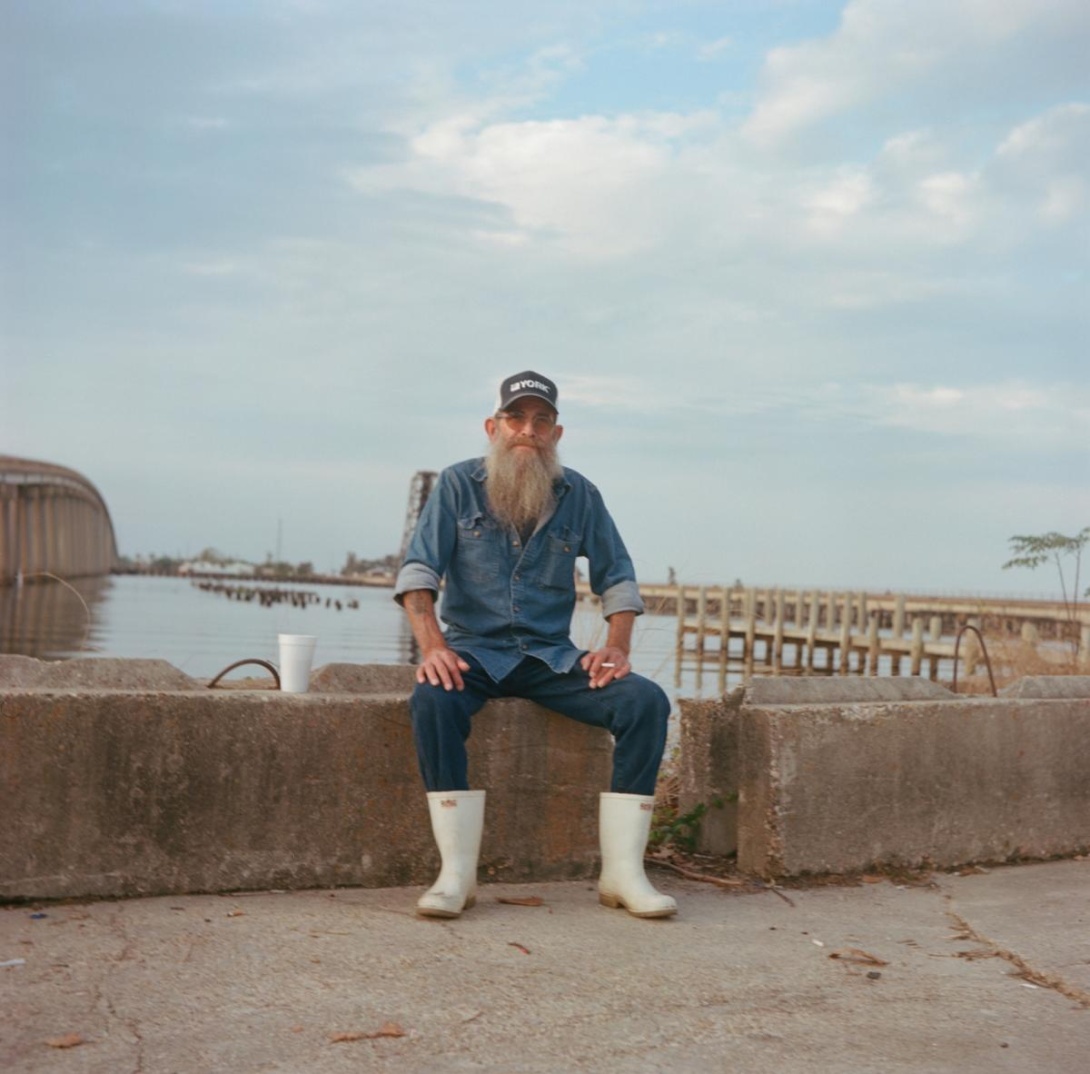
Pottee Kremer: 'Wish 'em bad luck'
Yeah, I'm totally against this. I've been born and raised here. I grew up in a commercial fishing family. My dad was a boat builder, had a fish market — fish, crab, shrimp, trap, all that. And I went — I grew up doing that. I started out catching my first catfish paddling for him. When I was 12, I got my first outboard motor. Then when I got to be about 16, 17, I went on crew boats offshore. But I still fished on my days off, and I just had a thing for the crew boat. And really back then I didn't realize how much damage the oil field did to the lower part of the state, cutting canals into marshes and all that when they first started.
Well anyway, I did that for 26 years, and I always come back home. So I'm back home now since I retired about four years now, living on a houseboat, and I've got commercial fishing, got my grandsons come and fish weekends, got my daughter and my granddaughters, and they like to come on the lake. And everything they doing out there, it's just gonna harm everybody. We have nothing good is gonna come out of it.
And you can even — if it goes through, people thats got a little sense, they might not want to buy our products around here. That goes to commercial fishing. But there's people all around they just love to come down here, and some of them just ride and look, some of them sport fish. Some of them ski. They do it all. But ain't nothing good gonna come out of it other than somebody gon' fill they pockets up, and they pockets already full or they wouldn't be in the business. They got the money to do it.
So I think the commercial fishermen and the recreation around here need to be left alone and let this place be like it is. And God made it like this. God made it survive. So we pretty much all think on the same basis here, down here. And not only right here in Manchac — around the whole lake. If we can keep them out of here, the better off we are. But they talk about, they can work around us, and we can work around them. But we can't get within 1,000 feet of them. We don't have no 1,000-feet tape measures. They gonna be having 45 boats out there — they might have more boats out there running around than we got commercial fishing now. So my theory is, wish 'em bad luck and shove it up they ying yang.
Tags
Jason Kerzinski
Jason Kerzinski is a street portrait photographer and journalist who has published stories in The Real News Network, Scalawag, The Progressive, and Antigravity.
